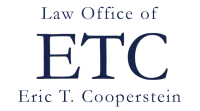Lawyerist readers are familiar with the mantra for building a law practice: networking, networking, networking. But there are lawyers out there who, despite their keen legal minds, are just painfully shy. For these lawyers, the idea of “working the room” at a cocktail party or calling someone that they hardly know to arrange a coffee or lunch meeting is not just undesirable, it actually could make them break into a cold sweat.
The risks of isolation
The introverted lawyer is not just at risk of being unable to develop a referral network that will generate business. In representing lawyers in discipline matters, I often see lawyers who are very isolated from other lawyers, whether it is by virtue of office location (working from home, renting an inexpensive office in a suburban office park, working in a rural area), a strong independence streak (“I will prove I can do this myself”), or, sometimes, not knowing how to get started networking. For some lawyers, isolation leads to bigger problems, such as not having colleagues to turn to when tough questions arise on files or not having anyone around to notice that the lawyer is showing signs of depression. It is troubling in a discipline case to represent a lawyer who cannot identify one or two friends with whom the lawyer has shared his or her problems and know the lawyer well enough to testify as a character witness.
Get in the game
Introverted lawyers should approach networking in ways that will minimize confrontation. For starters, become a joiner. Sign up for one or two bar committees, social organizations, or nonprofit boards that will have regular meetings. Small nonprofits, in particular, are eager to have lawyers serve on their boards. Through these meetings, over time, you will get to know your fellow participants and they will have the opportunity to get to know you.
These relationships may lead to a coffee or lunch date but it is not critical. You should find appropriate times—before meetings, during breaks, walking to the parking lot afterwards—to slip your elevator speech into the conversation. After you’ve served a two or three-year term, move on to another activity. Yes, this is a long-term strategy. But really, all networking is a long-term strategy and you will likely make deeper connections with people who actually work with you on projects than you would just by drinking a lot of coffee.
Go on-line
Introverts should also take the opportunity to participate in on-line discussion groups. Ask anyone who is active in a listserv and they will tell you that they get to know the personalities of their fellow participants just by reading their posts. More importantly, they develop trust in their colleagues and refer business to them. This is where an introverted lawyer can shine because often your strengths lie in deliberation and thoughtfulness (as opposed to your extroverted cousins, like me, who think while speaking, which occasionally has unintended consequences).
If your local bar association does not have an on-line discussion group or listserv, consider joining the ABA. No, it is not likely to generate referrals. Networking, however, is a skill. Like all skills, it needs to be practiced. After you get the hang of participating, perhaps you can be the one to introduce a listserv to your local bar.
Lastly, look for situations in which you can develop one-on-one relationships without the cold calling. Sign up for a mentoring program, for example. You put your name in, they contact you. Offer to visit or take meals to members of your religious community when they are ill. Join a book group. Just try to form relationships with people in environments that are suited to your personality.
Introversion is a personality type, not a disability. Everyone needs to play to their strengths, networking included.

 Running a successful law practice is all about getting clients. One way is by building a referral network, a frequent topic on Lawyerist. Another way is by advertising, such as in the yellow pages.
Running a successful law practice is all about getting clients. One way is by building a referral network, a frequent topic on Lawyerist. Another way is by advertising, such as in the yellow pages.
 Running a successful law practice is all about getting clients. One way is by building a referral network, a frequent topic on Lawyerist. Another way is by advertising, such as in the yellow pages.
Running a successful law practice is all about getting clients. One way is by building a referral network, a frequent topic on Lawyerist. Another way is by advertising, such as in the yellow pages. As I surf around the blawgosphere, I have noticed that it seems to be in vogue for
As I surf around the blawgosphere, I have noticed that it seems to be in vogue for  To my own surprise, I’ve been using
To my own surprise, I’ve been using  With the stock market gyrating and the economy sinking, many lawyers are already starting to see clients fall behind on paying their bills.  Here are a few ideas for managing fee collection through troubling times:
With the stock market gyrating and the economy sinking, many lawyers are already starting to see clients fall behind on paying their bills. Â Here are a few ideas for managing fee collection through troubling times: